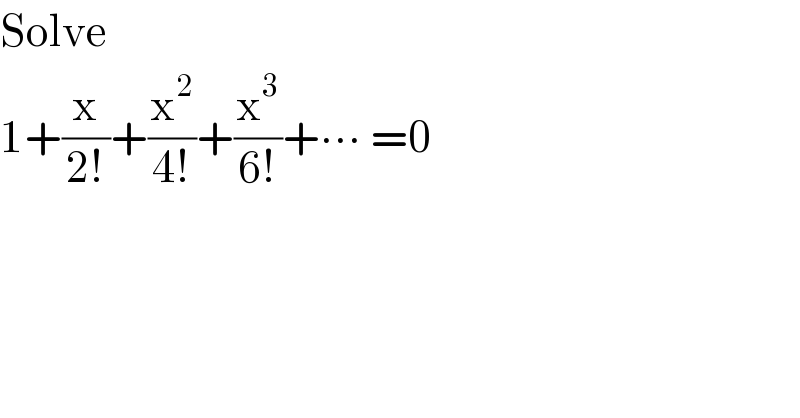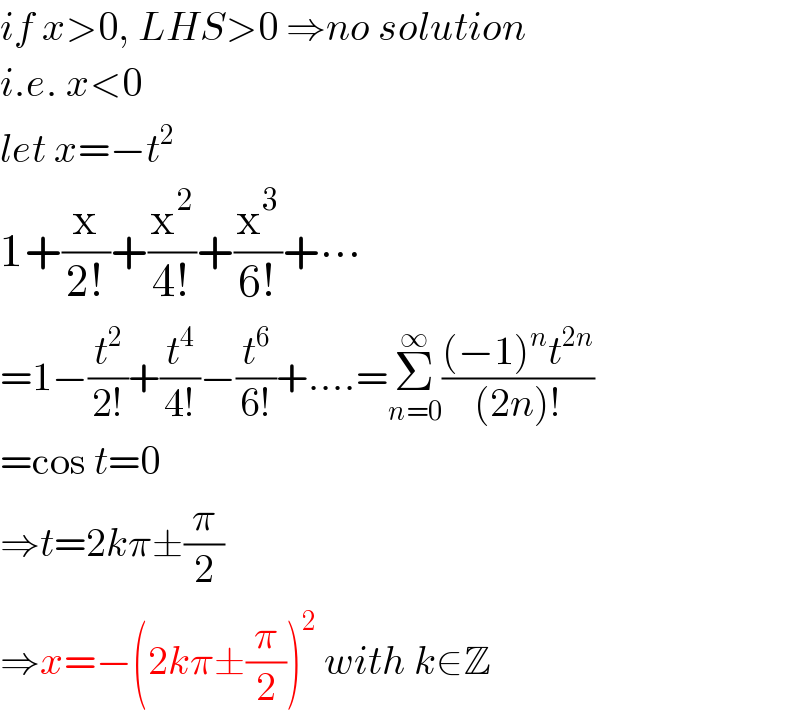
Question and Answers Forum
Previous in Permutation and Combination Next in Permutation and Combination
Question Number 92923 by Ar Brandon last updated on 09/May/20

Answered by mr W last updated on 09/May/20

Commented by Ar Brandon last updated on 09/May/20
��yes !
